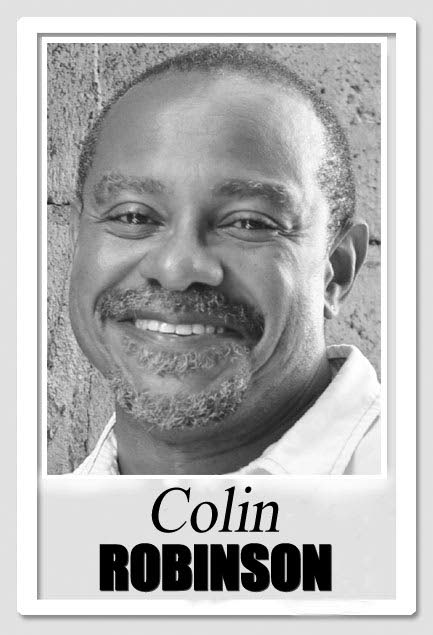The promise of an NHRI

I fear I may once again have misled readers. That I’m not the valiant, brave soul I’ve let you believe. In fact I’m a total medical coward. I’m still practising the art of dying, sure – and with so much more purpose and grace for all the incredibly kind and inspiring responses I’ve received to the Learning to Die column and the paper’s feature interview. Unlike some of you who’ve written the loveliest notes imagine, though, I’m not penning columns about shared-services mechanisms, tax-treatment of social giving and participatory governance through small spaces between my gritted teeth, but thanks to stitches in the seam between me and unliveable pain that extended-release morphine has sewn. Ever so often (last night) I panic it will breach. But so far, the blue pill mid-morning makes the days bearable. The red pill gets me through the night hallucination-free.
As well, no recovery roadmap proposal I’ve chatted about here in the first person is my idea – or CAISO’s – alone. All emerge from recent collaborative civil society process; our selection rule-of-thumb was: no new ideas. Even the midnight covernotes and uploading were shared.
All eight proposals, 12 supporting documents, hyperlinks to others, and a video you can watch, remain available for public perusal at bit.ly/RecoveryRoadmapResources_CAISO.
You’ve heard me say repeatedly: in times of hardship, the cheapest thing Government can give citizens is stronger human rights protection.
By the end of the UNC’s famous 1995-2000 term – where domestic violence protection orders were created, marital rape criminalised, common-law unions recognised, anal sex penalties raised to 25 years, international human rights conventions renounced, and ten people hanged – the Equal Opportunity Act (EOA) had passed. When the dust of the next three elections settled, with PNM in power, they refused to implement it, a blind man, Kenneth Suratt, sued, Government said laws discriminating against homosexuals were unconstitutional, Ivor Archie wrote what Anand Ramlogan called one of the most stunning Caribbean judgments, British lawlords promptly overturned it, and by 2008 the Equal Opportunity Commission and Tribunal were functioning.
Many modern nations have structures loosely called national human rights institutions (NHRIs). “Human rights” are agreements states came together in the wake of World War II’s carnage to formalise, recognising every human being as entitled to by virtue of being born, eg, equal protection in law...freedom from torture...decent work conditions...a certain standard of health.
States hold each other accountable for these through treaties they sign and structures like the Inter-American Commission on Human Rights, African Commission on Human and Peoples’ Rights or UN Committee on the Elimination of Discrimination Against Women – mainly through shaming; they take action only in egregious cases. Rulings by these bodies, new treaties, and protocols to old ones expand and clarify rights.
States can also opt into provisions that let international bodies hear individual human rights cases, making rulings binding on them. For young states with still developing institutions, who often bemoan the cost of human rights compliance, these measures can backstop local weaknesses. TT’s opted into only one, and famously in 1999, to hang Dole Chadee & Co, we pulled out of two important ones.
Domestically, of course, states can go beyond international norms in recognising and protecting rights. Our Equal Opportunity institutions, in both function and aspiration, are the closest TT has to an NHRI. (Our Ombudsman’s Office, responsible in Caribbean constitutions for reporting to Parliament when someone claims “administrative injustice,” has never come to life under any incumbent as a human rights champion.)
NHRIs do three key things. They’re an advisory authority for state entities regarding what they can/can’t do given TT’s human rights obligations. They undertake popular education and build a culture of human rights. They name-and-shame like the international bodies; and likewise can be given power to adjudicate violations and prescribe redress.
Non-discrimination is fundamental to human rights. Yet, TT’s Constitution protects you only when the violator is the State, not a business or fellow citizen. The EOA essentially creates two bodies where people can go, without a lawyer, lodge complaints of unjust discrimination in education, employment, housing, goods or services, attempt conciliation and, failing that, seek Equal Opportunity Tribunal adjudication of the claim, with a judge guided by lay people with real-life experience. Most important, you can raise “horizontal” claims not involving Government.
When the UNC proposed this legal-structural framework to prevent discrimination, PNM legislators argued culture was good enough, and you can’t outlaw badmind. Reports are they feared a rush of complaints and money judgments for Indians alleging discriminatory treatment. After a decade, this hasn’t been the case. And September 21, 2016 at a major United Nations human rights peer-review, the current PNM administration committed to establish an internationally compliant NHRI.
Let’s get that done!

Comments
"The promise of an NHRI"